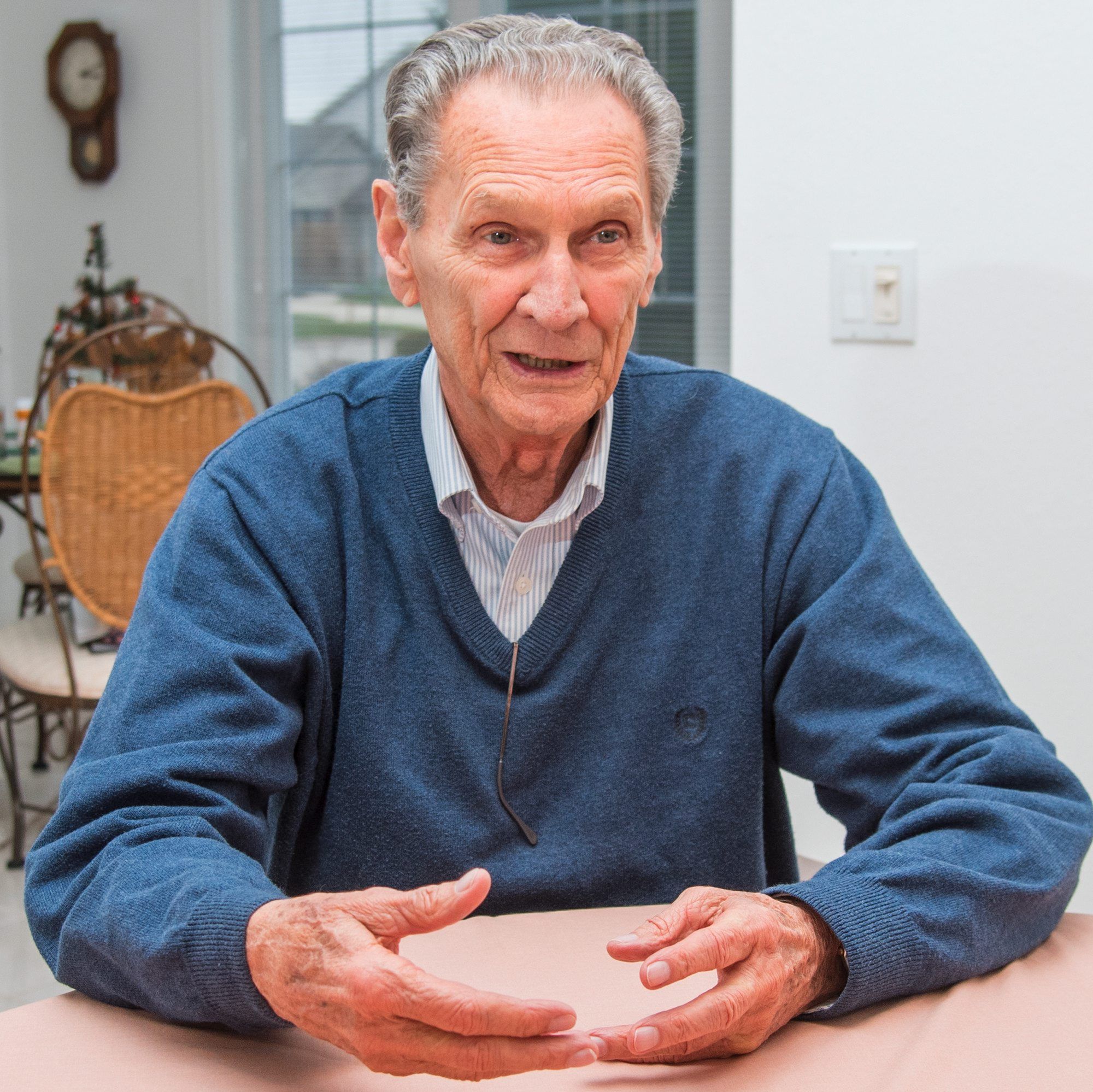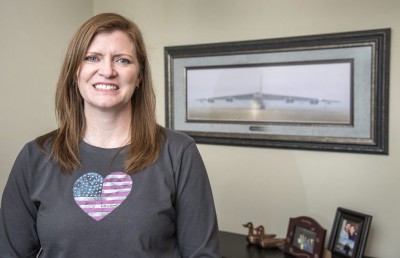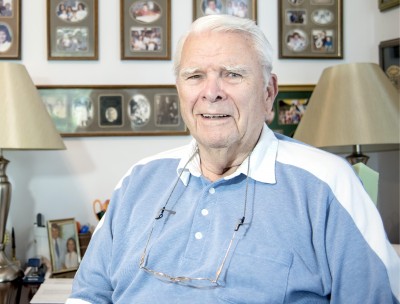Melvin Parker
By Paul Wood

Photo By Robin Scholz/The News-Gazette
CHAMPAIGN — Melvin Parker joined the Army right after World War II, when it looked like there might be war with the Soviet Union over the blockade of the city of Berlin.
The draft had been newly reinstated, and the kids from his street volunteered rather than be drafted. But the Berlin Crisis was resolved — to some extent — peacefully, and Parker left the Army to join the Reserves.
He was soon called back to fight in Korea, where he would find out the real enemy was the Chinese.
Parker, 85, grew up in Decatur. Eventually, he moved to Champaign when Illinois Bell promoted him.
The Korean War started in June 1950.
“They sent me for nine days’ retraining; then we took a troop train to San Francisco and shipped out to Japan,” where his unit stayed in Japanese World War II barracks.
Then there was another troop ship, an overnight trip to South Korea.
In an artillery unit, Parker moved toward the Yalu River. Gen. Douglas MacArthur had promised that a quick advance to the Yalu would end the war, Parker recalls.
“He said he’d get us home by Christmas,” Parker says.
“We got near the Yalu River … that’s when a million Chinese came across,” he says, causing an enormous retreat.
“There were so many of them, there wasn’t much you could do,” he adds.
President Harry Truman fired MacArthur, ending a career that the general had hoped would take him to the presidency.
“We retreated; they reported that the Marines made a ‘strategic withdrawal,'” Parker says with a laugh.
His unit was shipped back to a port at the southern tip of the Korean peninsula, with the USS Missouri and other ships lobbing shells at attacking troops.
From there, the U.N. coalition troops began to move back north, stopping at the 38th Parallel, which became the Demilitarized Zone that exists to this day.
There, he was part of a team steadily firing shells at the Chinese, who had much smaller weaponry, mostly mortars.
“We held them back with our artillery. We also had considerable superiority in our Air Force,” Parker notes. “The Chinese didn’t have much of a supply line; it was a third-world country; the U.S. kept us well-supplied.”
Still, it could get to 30 degrees below, and his unit moved frequently, sleeping in tents with “mountain” sleeping bags.
“When it got really cold, we got into the sleeping bags,” he says.
Vehicles had 6-volt batteries that froze up, so engines were kept running all the time when it was cold.
Also dangerous, he says, were the land mines in the DMZ.
In September 1951, Parker rotated home. He went back to Illinois Bell, which had made up the difference in his paycheck all through his tour.
In 1952, he married Annie; they are still together.
There’s something of a military tradition in the family.
When his granddaughter became an officer, the former staff sergeant gave her the first salute. Then they shook hands, and she passed him a silver dollar, part of the tradition. Parker shows off the silver dollar with pride.
Do you know a veteran who could share a story about military service? Contact staff writer Paul Wood at pwood@news-gazette.com.
Read more stories from local veterans:
 Matt Kreeb
GILMAN — Sgt. Matt Kreeb was eager to serve his country. The Iroquois West grad served in the prestigious and demanding …
Matt Kreeb
GILMAN — Sgt. Matt Kreeb was eager to serve his country. The Iroquois West grad served in the prestigious and demanding …
 Lizabeth Wenzel
MAHOMET — Lt. Col. Lizabeth Wenzel flew an un-manned flight. She was part of a “chick flight” on a B-52, all five crew m …
Lizabeth Wenzel
MAHOMET — Lt. Col. Lizabeth Wenzel flew an un-manned flight. She was part of a “chick flight” on a B-52, all five crew m …
 Don Moran
SAVOY — You can thank Western Illinois basketball for steering Sgt. Don Moran toward protecting U.S. interests in Wester …
Don Moran
SAVOY — You can thank Western Illinois basketball for steering Sgt. Don Moran toward protecting U.S. interests in Wester …